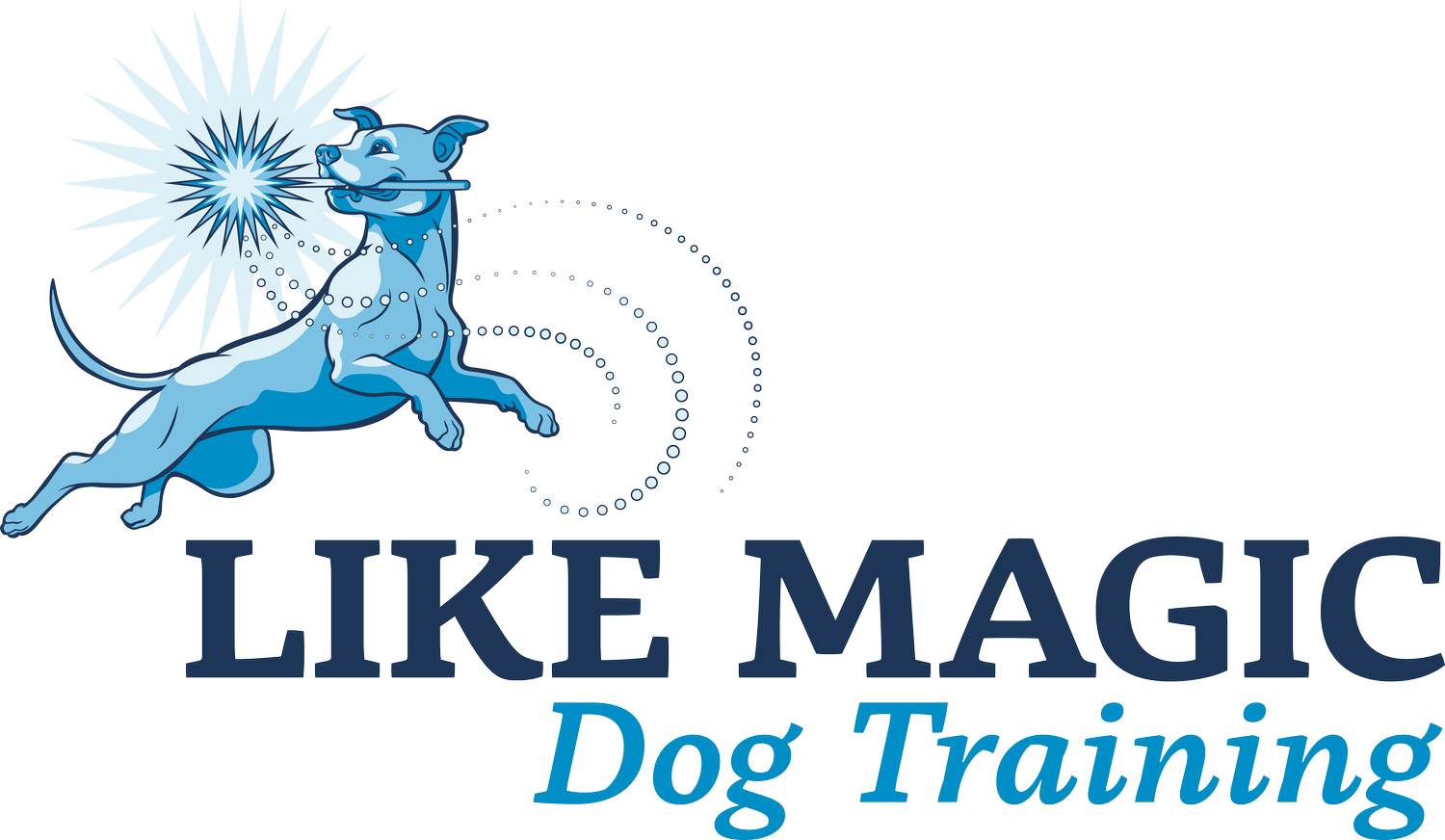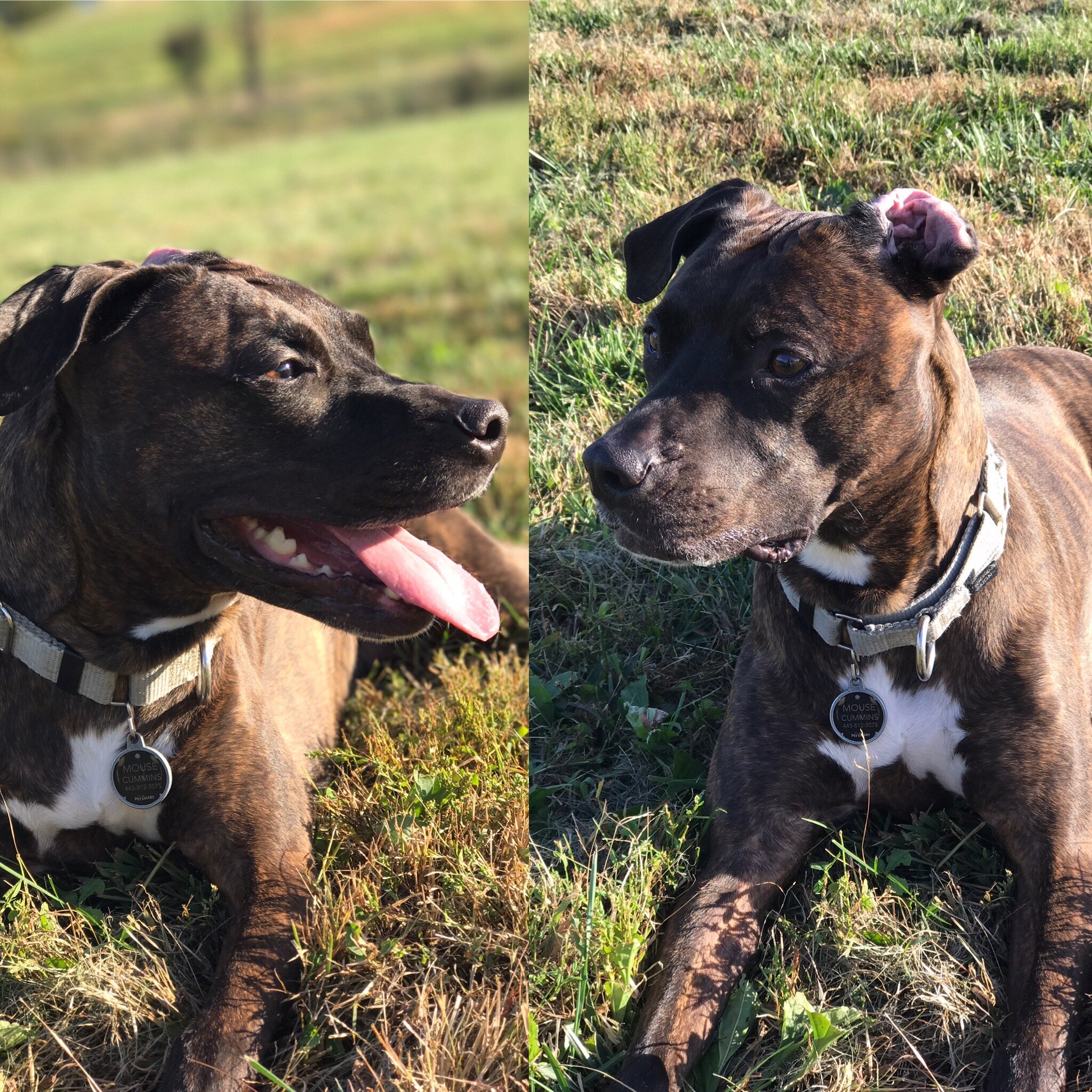I'm the Mean Mom: No, My Dog Can't Say Hi
I’ve resisted writing this post since so many people have written in support of those of us with reactive dogs, and in cautioning against on-leash greetings. But as the question comes up again and again, I’m realizing that this should be one of those things that should be shouted from the rooftops.
The reason Mouse doesn’t say hi: A visual. This captures the moment before a dog barked, and the moment after. Look how thoroughly her body has changed.
In so many areas of life, it isn’t until you’re midway through your journey through something difficult, something heartbreaking, something isolating, that you suddenly discover a community of people all ready to tell you “that happened to me, too.” It seems almost unjust that in a world so globally connected by the press of a button (or, rather, given touch screens, with no button at all) that people should be so…alone.
But when you have a reactive dog, or a scared dog, or an angry dog, or simply an impolite dog, it seems more often than not that you are alone. When I dip my toe into the dangerous waters that are generic Facebook groups, I see it:
“How could you force your dog to wear a muzzle, didn’t you TRAIN her?”
“Just walk them in a field.”
“Just ‘socialize’ him”
“XXX celebrity fixes dogs like this”
“It’s all in how they were raised” (to the owner of a reactive dog, oh, this one cuts - what on earth did I do to create this?)
It’s hard not to rail against the storm of unique ways we diminish the toll a reactive dog can take on someone, to correct the misconceptions, to scream into the void that we are here and we are not alone. To quote a long-favorite web comic, “someone is wrong on the internet.”
If it stayed virtual, though, that might be one thing. But it’s in our neighborhoods. The alarm bells that ring out with every “It’s okay, he’s friendly!” that I long since lost self-consciousness over countering with “Mine isn’t’”.
Dogs are challenged on leash for so many reasons. For some, it’ because they like dogs (or humans), and their frustration is expressed in barking and lunging. These dogs should not say hello on leash. They aren’t emotionally stable in that moment, and being rewarded by pulling toward the object of their affection isn’t conducive to a peaceful walk with their person.
For others, they are scared. They want to warn other dogs (or people) away. Or they are angry. Or, perhaps, they just think fighting might be super fun. And this could have happened for so many reasons. Genetically, many breeds should be wary of newcomers. They may have had a lack of socialization or a challenging experience during a fear period. Or perhaps they were just poorly bred and have fear or neuroses in their bloodline.
It is okay not to say hi. Your dog should not be expected to love everyone they meet. They should be permitted their space. They should be given the balance of freedom and management that allows them to live their most fulfilled life. Parallel walk with known, neutral dogs. Muzzle train. Take them for decompression walks, and train behaviors that reward them for looking to you rather than losing their minds.
Above all, embrace the “No.”
If you have a friendly dog and love visiting with the neighborhood canines, please ask first - and please be ready to take no for the answer. If you have a reactive dog, know you’re in good company. There are some fabulous articles surrounding this topic here, here, and here. Check out the DINOS project, and the Muzzle Up project .

